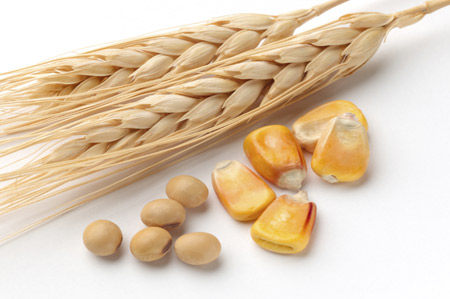 (Businessweek) – Corn and soybean futures rose on speculation that warm, dry weather in parts of the Midwest next week will stress crops in the U.S., the world’s biggest grower and exporter. Wheat declined.
(Businessweek) – Corn and soybean futures rose on speculation that warm, dry weather in parts of the Midwest next week will stress crops in the U.S., the world’s biggest grower and exporter. Wheat declined.
Most fields from Missouri to Ohio will get less than 0.5 inch (1.3 centimeters) of rain over the next five days, said Kyle Tapley, an agricultural meteorologist for MDA Information Systems Inc. in Gaithersburg, Maryland. Temperatures will average about 10 degrees Fahrenheit above normal during the next seven days, making soils drier, he said.
“The crops need rain, and there doesn’t appear to be much relief coming,” Ron Mortensen, the president of Advantage Ag Strategies Ltd. in Fort Dodge, Iowa, said in a telephone interview. “The crops are holding up well for the moment, but they are going to deteriorate quickly with the heat.”
Corn futures for December delivery, the contract with the highest open interest, rose 0.2 percent to $5.1725 a bushel at 10:07 a.m. on the Chicago Board of Trade, paring the contract’s decline for the week to 4.9 percent. The contract for July delivery, before the harvest, fell 2.8 percent to $5.845, heading for the first drop in three sessions.
Soybean futures for November delivery rose 0.5 percent to $13.1575 a bushel on the CBOT. The contract for July delivery rose less than 0.1 percent to $13.8675.
Dry to severe-drought conditions covered 60 percent of the Midwest on June 12, compared with 1 percent a year earlier, U.S. Drought Monitor data showed yesterday. About 66 percent of the corn crop was in good or excellent condition as of June 10, down from 72 percent a week earlier, the U.S. Department of Agriculture said June 11. About 60 percent of the soybean crop got the top ratings, compared with 65 percent a week earlier.
Wheat futures for December delivery fell 0.7 percent to $6.62 a bushel in Chicago.
Corn is the biggest U.S. crop, valued at $76.5 billion in 2011, followed by soybeans at $35.8 billion, government data show. Wheat is the fourth-largest at $14.4 billion, behind hay.
To contact the reporter on this story: Jeff Wilson in Chicago at jwilson29@bloomberg.net
To contact the editor responsible for this story: Steve Stroth at sstroth@bloomberg.net




